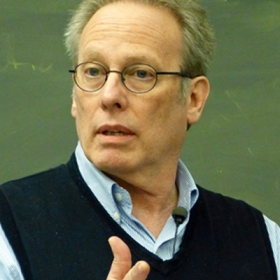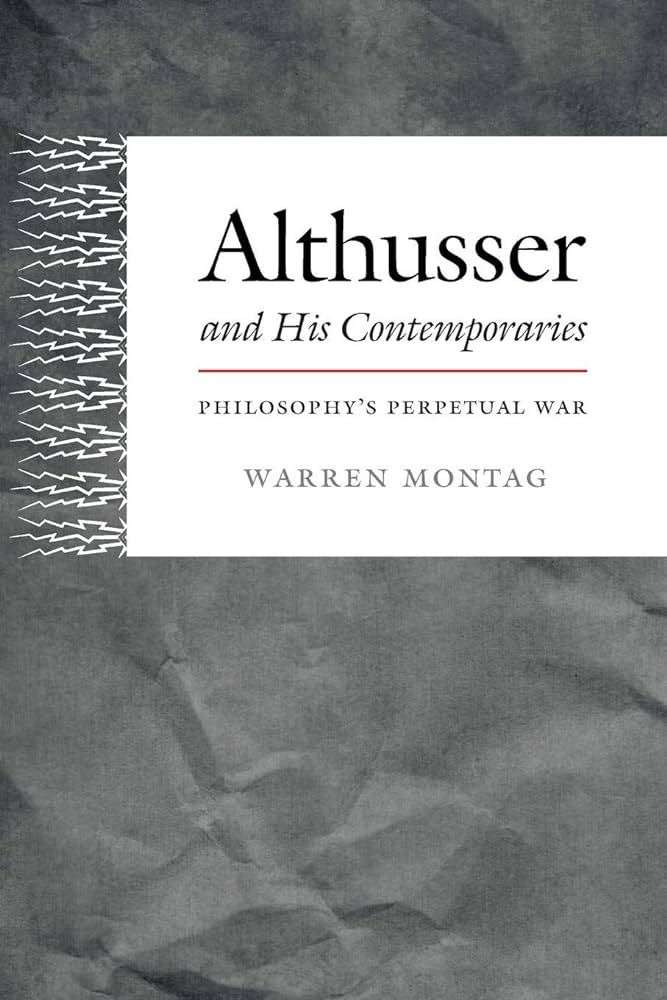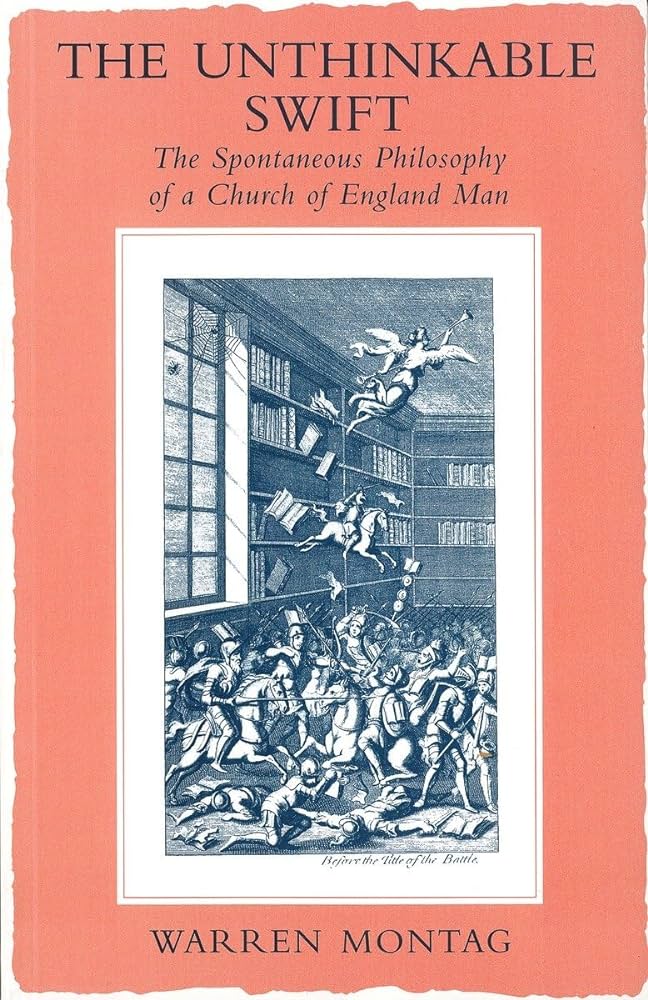Warren Montag

I AM A tenured professor of English at Occidental College in Los Angeles, which has a long tradition of progressive activism, including around Palestine. I have served as the faculty advisor to the campus chapter of the Students for Justice in Palestine for about 12 years. There was nothing unusual about the fact that, soon after the October 7 attack by Hamas and beginning of Israel’s war on Gaza, a group of 37 faculty, of which I was one, drafted and sent a letter to faculty, students and staff condemning the war. We referred to Israel as a colonial settler regime that had embarked on a genocidal war against the population of Gaza, based on the now well-known remarks by the President, Prime Minister and Minister of Defense of Israel. Although, I was only marginally involved in the writing of the letter, I was asked to send it out under my name, based on my being senior faculty and therefore unlikely to face serious consequences for doing so. I agreed without hesitation and sent the letter to the faculty, staff and student lists.
From that moment, it appeared that the entire administration was mobilizing to prevent the circulation of the letter, above all, to students. Upon learning that the letter was blocked from appearing on the student list, something I had never seen in my more than thirty years at the College, I wrote to the administrator in charge for an explanation. I received no response to that or any subsequent inquiry I made. Soon after, we learned that some rightwing faculty had denounced our letter on social media, suggesting that we might well be Hamas supporters and should be investigated by the proper authorities. After the letter had circulated through student networks, the student newspaper reported that our statement had made Jewish students feel “unsafe” and distressed. Further, our characterizations of the government of Israel and the IDF were deemed unfair and antisemitic.
Near the end of October 2023, I was invited to speak at an on-campus forum on the issues raised in the US by the Gaza war. I chose a topic that I had addressed publicly on five previous occasions, beginning around the first Intifada: Anti-Zionism is not anti-Semitism. On perhaps two of the five previous presentations, I faced some critical, but fair, questions and comments, which I genuinely welcomed. The response to the event which took place on November 8, 2023 was unlike anything I had experienced previously around any issue, no matter how controversial. My presentation focused on three themes:
1) the recent history of using the charge of anti-Semitism to discredit critics of Israel and, even more, critics of the Zionist enterprise as a whole;
2) the history of Jewish opposition to Zionism, including the Bund and the Communist movement, the opposition based on Jewish doctrine, and the argument in favor of assimilation;
3) I addressed current charges that Israel was engaged in ethnic cleansing and genocide and read relevant passages from different sources (The Law of War and the Geneva Convention, among others). I also read the public statements by Herzog, Netanyahu, and Gallant (the president, prime minister and minister of defense) declaring all Palestinians responsible for Hamas’ actions on October 7.

I should have known that, given the current atmosphere in the US, my topic would prove more controversial than it had in the past. Even before the event, I was attacked by some faculty simply for the topic of my lecture. One colleague declared that title itself was “hate-speech” directed at Zionists and was deeply offensive to Jewish colleagues and students (my accuser was soon informed that I am a Jew—which changed nothing). More surprisingly, I began to receive letters from parents, something I’d never seen before, some demanding that I meet with them to learn the truth about Israel (its grandeur and holiness) and about “the Arabs” (who according to one parent were not only always engaged in killing each other, but were filled with Jew-hatred). Others declared that I should be fired for the ignorance I displayed in opposing Zionism. All of this before my talk.
The event itself went well from my prospective: there was discussion, including one or two mildly hostile comments. Students came up to talk to me after the event was over. All perfectly normal. As soon as I walked out of the lecture hall, however, I was bombarded with texts and emails, not from students but from administrators and parents. One administrator wrote to the student body, to tell them (and their parents) that the school did not endorse or take responsibility for Professor Montag’s remarks, which he alone should answer for, thereby inviting them to express their wrath to me directly—which they did. A number of parents made it a point to remind me that they pay a lot of money to send their child to Occidental College, far too much for their child to be exposed to an unfair and, worse, inaccurate, account of Israel’s actions in the war, as well as to the libelous accusation that Israel was committing the crime of genocide. One parent in particular threatened to contact my “supervisor,” which, I was warned, would likely result in disciplinary action.
A few weeks after my talk, I received an email from a top administrator informing me that a complaint was made by a Jewish advocacy group (the Anti-Defamation League), apparently in affiliation with several Oxy parents on the basis of reports received by their students. ADL’s regional director alleges that during your ‘teach-in’ on October 21, you stated that ‘Israel is a genocidal ethnic cleansing state’ and that ‘some Jews preferred to stay in concentration camps rather than go to Israel.’ As I mentioned earlier, the purpose of our meeting is not to investigate, as this complaint was not brought to me by an Oxy student or employee. But I did want to pass on the report, for your information, and allow you an opportunity to provide context, disclaimer, or otherwise discuss it. I also asked [an HR representative] to provide insights from her position about the current environment on campus, and ways to promote a greater sense of inclusion and belonging for our students.
This was a clear attempt at intimidation, carefully crafted to maintain plausible deniability (although not carefully enough, as it turned out): I was not facing disciplinary action, but only because “this complaint was not brought” to the administrator in question “by an Oxy student or employee.” Apparently, if a student or employee had complained that I had said “Israel is a genocidal ethnic cleansing state,” or its equivalent in idiomatic English, I could face disciplinary action (the other statement is an absurdity that neither I nor anyone else would argue). But how is this possible? These assertions are currently being debated throughout the world and have recently been found to be plausible by the International Court of Justice. Why would I be asked to provide “context” or “disclaimer” for my discussion of these issues?
The presence of the HR representative whose role was “to provide insights from her position about the current environment on campus, and ways to promote a greater sense of inclusion and belonging for our students,” offers a possible answer to these questions. Merely by taking seriously the charges that the highest officials of the Israeli government had expressed the intent to commit genocide and justified, in advance, the commission of genocide, I had created a hostile atmosphere for a protected group, i.e., Jews. The representative from HR would be present at the meeting to explain the hurt and fear I had caused Jewish students by a lecture that no student had been required to attend and no parents did attend.
I later discovered that the most vocal parents demanded that I be fired immediately. When various administrators informed them that I was a tenured full-professor and could not be fired for the content of my talk, the parents were outraged and remained determined to take me down. They formed a chapter of Mothers Against College Anti-Semitism, a kind of Zionist version of Mothers for Liberty, a far-right group that monitors school and community libraries for LGTBQ-friendly books, as well as literature aimed at African-American and Latinx children and teens. The Zionist version is concerned with policing school libraries and college curricula, aiming to suppress critical accounts of Israel and pro-Palestinian viewpoints. They are driven by the view, shared by the ADL, that criticism of Israel is the modern form of anti-Semitism.

It goes without saying that I received hate mail, although none contained death threats. The primary threat was to my job, which few of the parents seem to understand. Tenure was an outrage to them and they genuinely believed that their tuition payments rendered me their employee and subject to their will. My giving a lecture critical of Zionism made me an anti-Semite, despite the fact that I am Jew, have taught Yiddish language and literature as an independent study (in addition to my required course load) and am a member of Jewish Voice for Peace. To them, my anti-Zionism represented a position from which one cannot speak as a Jew. Every criticism of Israel’s history and current actions is understood as a modernized form of the medieval Contra-Judaeos tradition: the showing of videos of Israeli atrocities, especially the killing of children, is just another blood libel.
In my own case, the “informational” meeting to which I had been summoned was very different from what the letter cited above had led me to expect. The meeting began with an assurance that the administration’s only concern was to help me weather this difficult time. The change in tone and attitude was the result of a very contentious faculty meeting a few days earlier. A resolution was introduced to address the following concerns:
* “potential external influences seeking to unduly shape the curriculum, infringing upon the academic freedom and autonomy of faculty members”
* “The administration’s recent statements on certain speech and events on campus, with a proper emphasis on safety and community, but lacking an equally forceful and clear commitment to the academic freedom of the faculty”
* “Such actions have resulted in a chilling effect on faculty members, leaving them feeling vulnerable and without the necessary institutional support to engage in free and open intellectual inquiry.”
The resolution condemning the very conduct I had experienced (without any reference to me) passed by an overwhelming margin.
No longer faced with the task of defending my presentation, I took the opportunity in my meeting with the administration to talk about the overinvolvement of parents and ask about the number of Jewish students who have complained about the atmosphere on campus. The vague answers I received left me with the feeling that it was a small group of students who worked closely with their parents. It was they who, upon realizing that I was not going to be fired, went to the ADL to report my “anti-Semitic” critique of Israel, that is, my discussion of the charges of ethnic cleansing and genocide as defined by the UN. I also asked how many of the complaints of anti-Semitism on campus were concerned with expressions of anti-Israel sentiment as opposed to anti-Jewish statements. I learned that none of the truly anti-Semitic incidents had been confirmed as such and remained unverified rumors. Further, I pointed out the contrast between the concern expressed for the safety and emotional well-being of Zionist (rather than Jewish) students, and the near absence of concern for Palestinian or MENA students, some of whom have family in Gaza and the West Bank. All of this was fine and well, but I have no illusions about the effectiveness of anything I said in the meeting.
I was never in danger of losing my job or physically threatened. Just as importantly, my years as an activist prepared me for the intimidation tactics and hostility. For my younger colleagues, especially those who are untenured or non-tenure track, however, the threats are real, and I truly admire those willing to declare their solidarity with the Palestinian people under the current circumstances. We have entered a new phase of persecution carried out with bi-partisan support. Colleges and universities have become battle grounds and we have to develop strategies to respond to new risks and dangers.
Finally, my experience, which is hardly unique, shows the decisive importance of opposing every attempt to conflate anti-Zionism with anti-Semitism. The figures that purport to show a significant increase in anti-Semitic activity on campuses around the country, reflect little more than the scale of the mobilizations across the US against Israel’s war in Gaza. The categorizing of slogans like “Ceasefire now” and “Free, Free Palestine” as anti-Semitic, allows university and college administrations to banish groups like SJP and JVP and to suspend or expel individual activists for simply speaking out against Israel’s war. It also invites Islamophobic attacks by members of both parties in Congress. It is on the campuses and in the streets that this battle will be fought out. We need to organize a counter-offensive to be able to build the kind of solidarity movement the Palestinian people deserve.
First published on the Verso site, March 6, 2024
